What is the point of a clock tower?
- Published
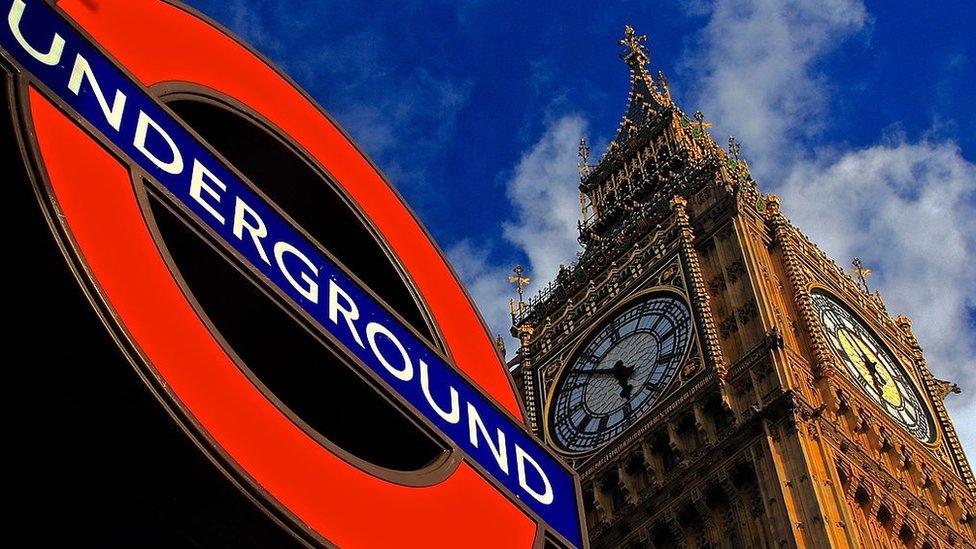
London's Elizabeth Tower, which houses Big Ben, is the most famous clock tower in the UK
We take for granted the ease with which we can find out the time. From watches and phones to computer screens and digital radios, there are so many options the question "have you got the time, please?" is one that's rarely heard these days.
Of course, it used to be the case that we relied on clock towers to ensure we weren't late. The earliest examples had no clock faces and so it made sense to place clocks in towers, whose bells could then be heard striking the time, from far away.
In the Middle Ages, many European cities invested in large-scale clock tower constructions, while in later years towers were sometimes erected to mark national events.
But in the 21st Century, the original function of clock towers helping keep people punctual is essentially redundant - so why should we care about them?
'It's an icon visible for miles around'
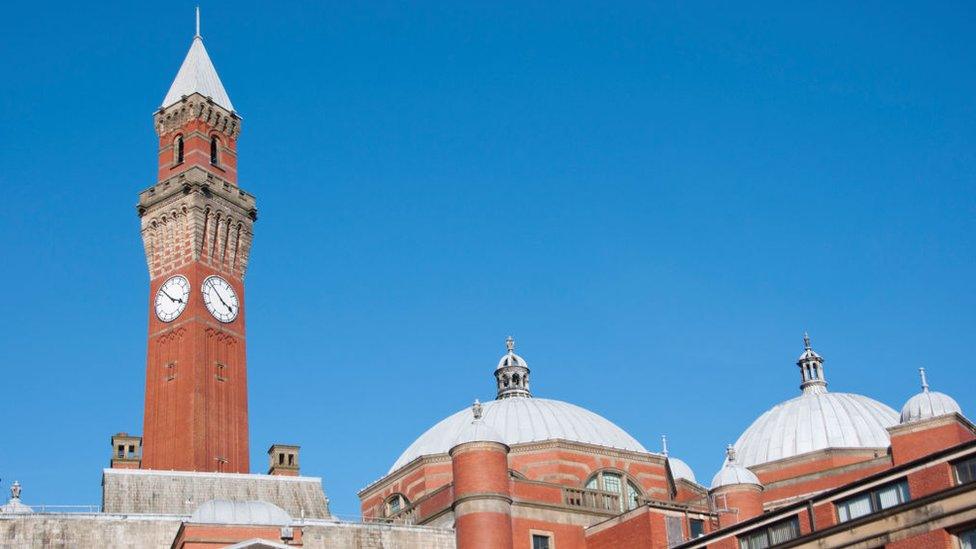
The Joseph Chamberlain Memorial Clock Tower is the tallest freestanding clock tower in the UK
The Joseph Chamberlain Memorial Clock Tower at the University of Birmingham still serves its original purpose more than a century after it was built.
Constructed at the university's Edgbaston campus between 1900 and 1908 and named after its first chancellor, the British statesman Joseph Chamberlain, the 328ft (100m) structure is the tallest freestanding clock tower in the UK.
"It continues to fulfil the exact aim for which it was put there by him," says Dr Matt Cole, a teaching fellow in history at the university.
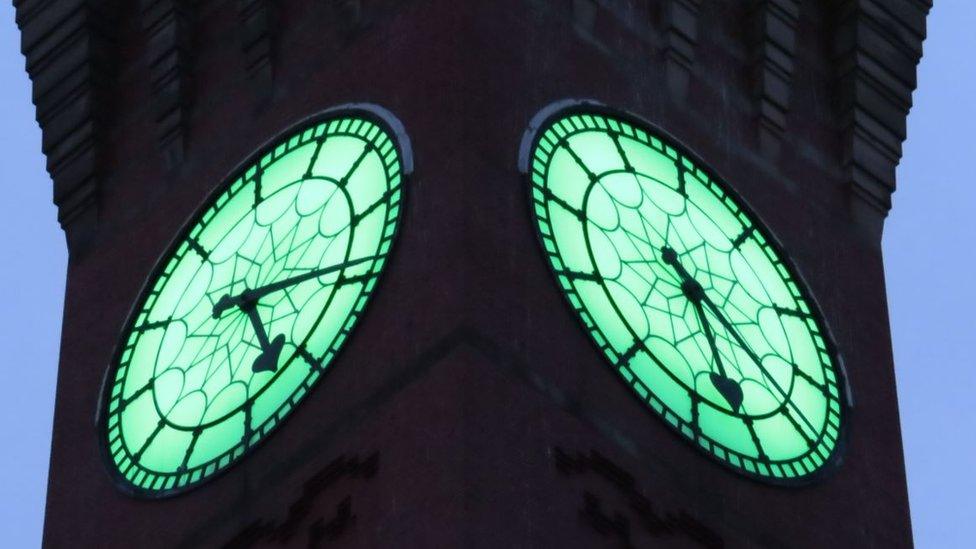
The colour of the clock's four faces can be changed to mark events such as St Patrick's Day and Pride
"It was an advertisement, it was a public relations exercise. I think the idea was as people walked by or came by on the train going into Birmingham, they would say 'what's that thing?'
"It still is visible for miles around and is an icon of the university. His essential point was right; the university needed to make its mark and needed to have high visibility.
"However bad a day you've had at work, it's always a great reassurance when you step out and see the clock in the twilight."
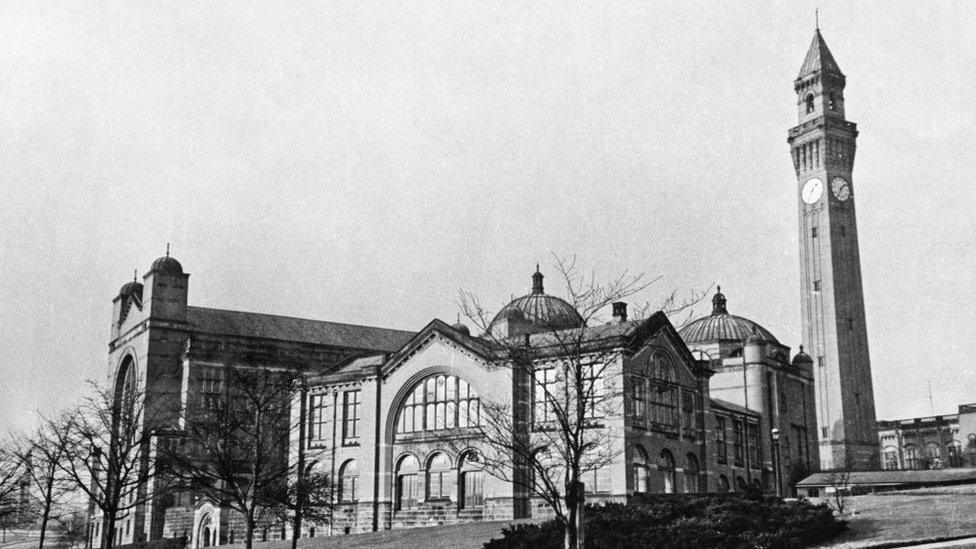
The clock tower has dominated the university's skyline for more than a century
Affectionately known as Old Joe, the tower even has its own Twitter account, external, boasting about 7,000 followers.
Old Joe is used year-round for university celebrations, including graduations, where it provides the perfect photo backdrop for ceremonies, and its glowing clock face is believed to have been the inspiration for the Eye of Sauron in JRR Tolkien's The Lord of the Rings trilogy.
'I met my wife there'
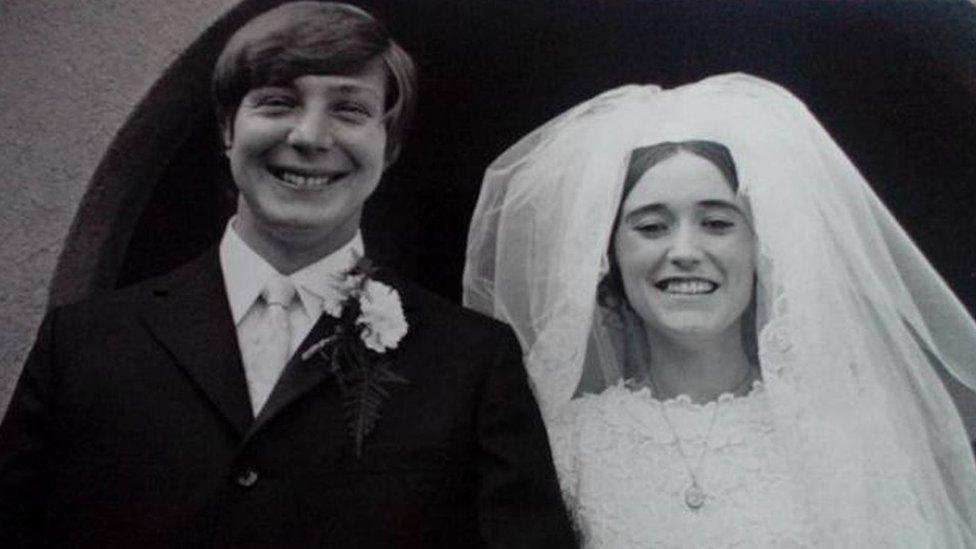
Steve and Janet Shorney met at the Jubilee Clock Tower in Weymouth in 1968
While we might not bother glancing upwards at it to tell the time, the clock tower remains a handy spot to meet our friends. For Steve Shorney, from Bristol, the Jubilee Clock Tower in Weymouth is the place he met the woman who would become his wife.
"There were three of us lads, we used to get together years ago, and in 1968 we decided to spend the weekend down in Weymouth," he says.
"We didn't have a lot of money in those days so we hitchhiked down and arranged to meet each other at the clock tower."
While waiting there, Steve and his friend bumped into two young women they asked to see again later that weekend. "When I got home after that weekend, having spent time with Janet, I said to my mother and father: 'I think I've met the girl I'm going to marry'," Steve says.
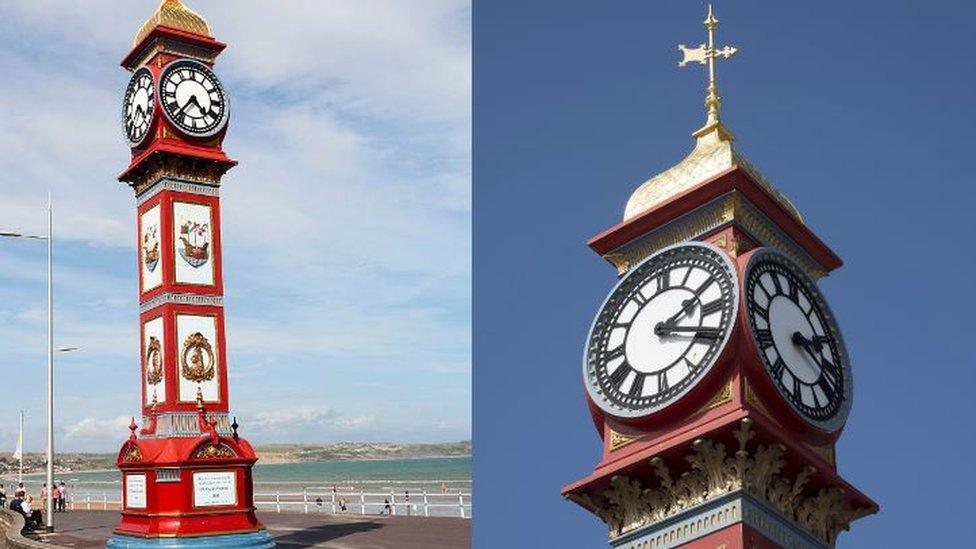
The Jubilee Clock Tower was a gift to Weymouth from MP Sir Henry Edwards in 1887 to mark the Golden Jubilee of Queen Victoria
He and Janet are still together 51 years later and have been married for 48.
"We go back to Weymouth reasonably regularly and we sit under the clock tower and say: 'This is where it all began, when I saw you walking towards me.' We've got two children and three grandchildren now," he said.
"Janet is from Bristol too and was on holiday in Weymouth with her friend. So we're both from Bristol and meet in Weymouth - it was obviously meant to be."
'When the clock strikes five, you come home for tea'
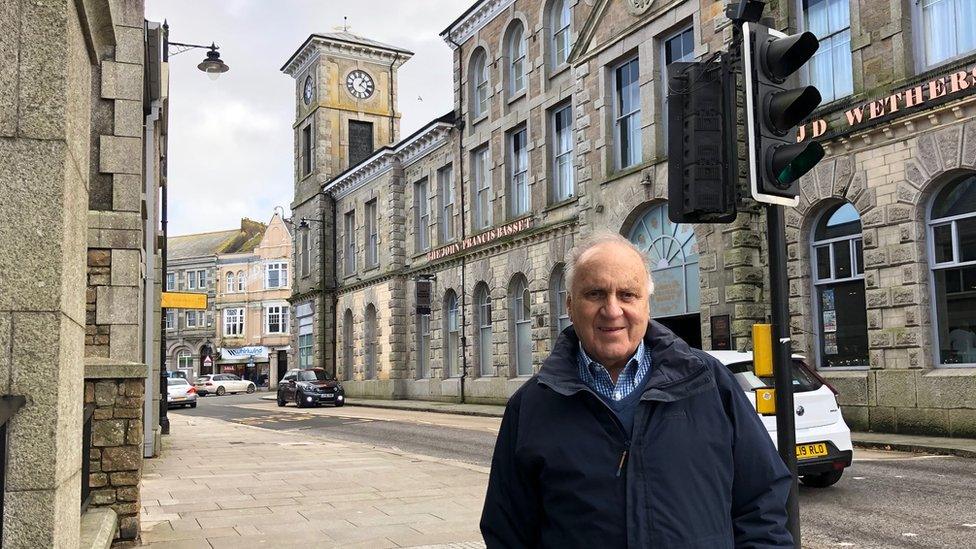
While big cities like Birmingham have several prominent landmarks to instil pride in their residents, elsewhere the clock tower can be a central part of a town or village's identity. One such place is Camborne in Cornwall.
"The clock is part of our culture and history," says Ivor Corkell, the secretary of Camborne Old Cornwall Society and a lifelong resident of the town.
"When I was young, the clock played an important part in our behaviour and everyone used to listen to the clock chiming," he says.
"When we were children, mothers would say: 'When the clock strikes five, you come home for your tea'.
"But it was far more difficult at lunchtime because you had to count to 12. Some children were coming home at 11 after getting it wrong - they were an hour early for their lunch."
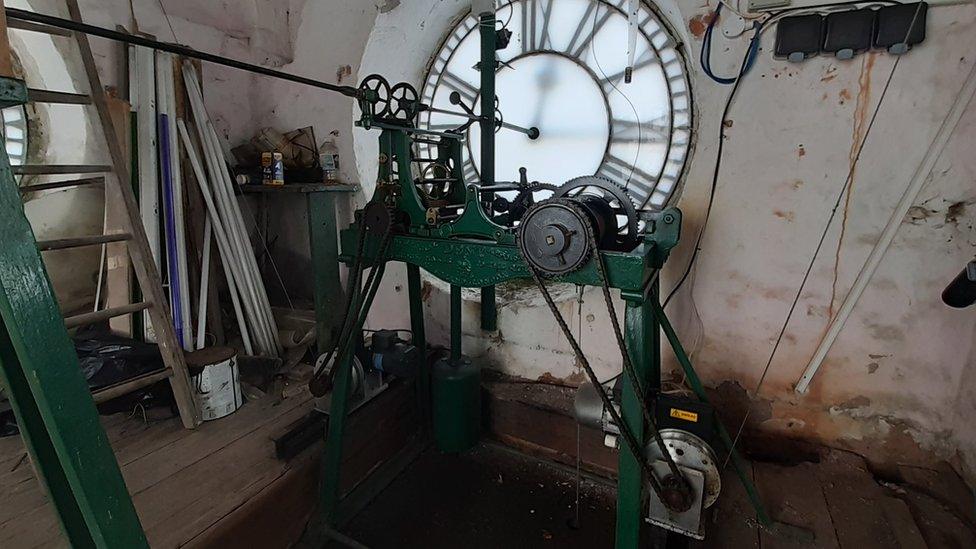
The town's clock tower is often referred to as Little Ben - originally the clock would have been wound up by hand every 36 hours
A source of pride for locals is that their clock tower was produced by Dent, the same company that made the clock, familiarly known as Big Ben, for the Elizabeth Tower at the Houses of Parliament. Indeed, the clock in Camborne is referred to as Little Ben.
Martin Whiteley, who grew up in Cornwall, has fond memories of his father working on the clock.
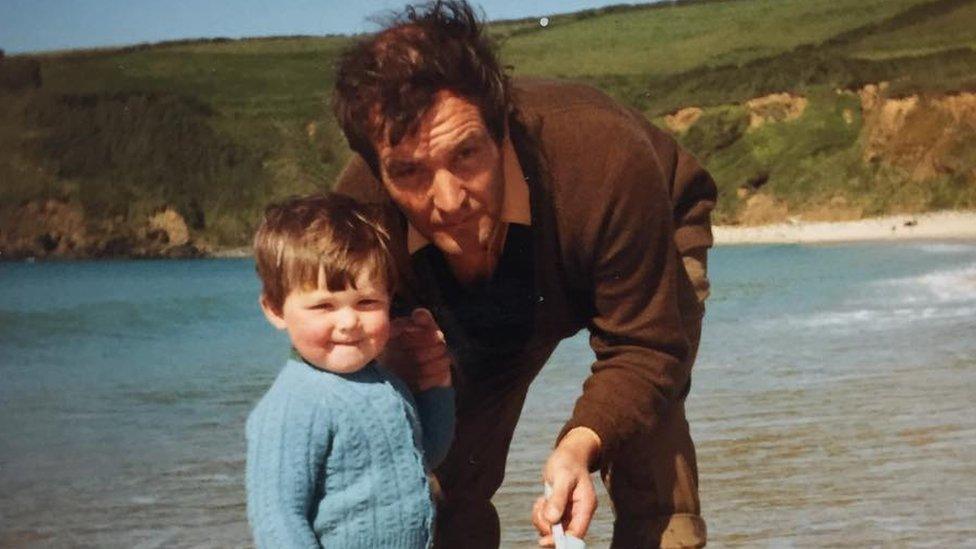
Martin Whiteley used to help his father wind up the clock
"I remember climbing up the various internal ladders with Dad to wind the old beaut up," he says.
"If I remember right, there were two big handles to wind the weights up. There was a big one for the bell and the smaller one ran the movement for timekeeping. I can still hear the clacking ratchet as you leaned on those handles - quite a workout for a little one.
"I'd use my whole body to try and turn it. Dad used to put one hand on it and turn it easily. I thought he was Superman."
You may also be interested in:
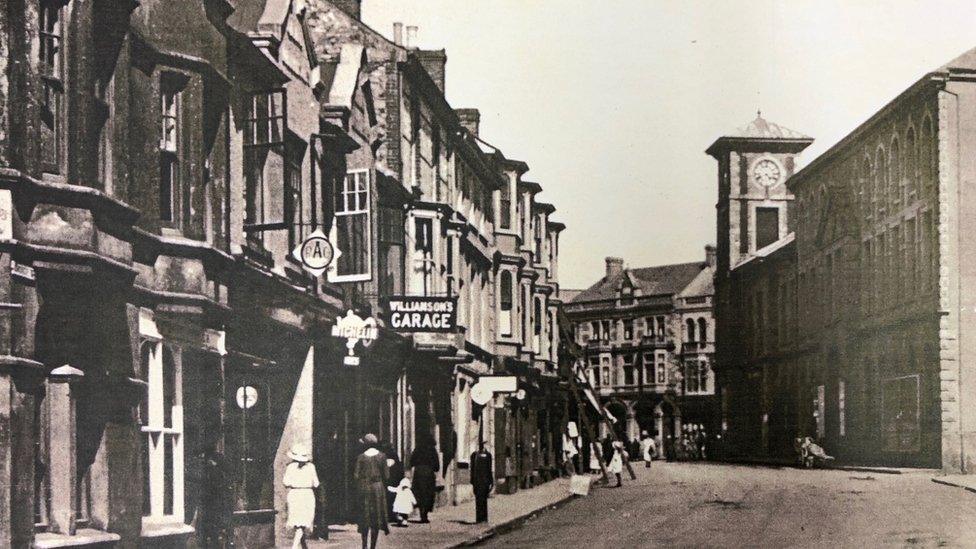
The tower was given to the people of Camborne by local landowner John Francis Basset in 1866
"This old mechanical clock, the little brother of Big Ben, was an important part of this town," Ivor says. "It's certainly a landmark.
"You still look up at the clock tower if you want to know the time. When you're going to catch a bus, you look up there. Is the bus early or late?
"It's still an important part of our lives when we walk around and see the clock. We can still hear the chiming over a big area of the town, too."
'My husband got a clock tower tattoo'
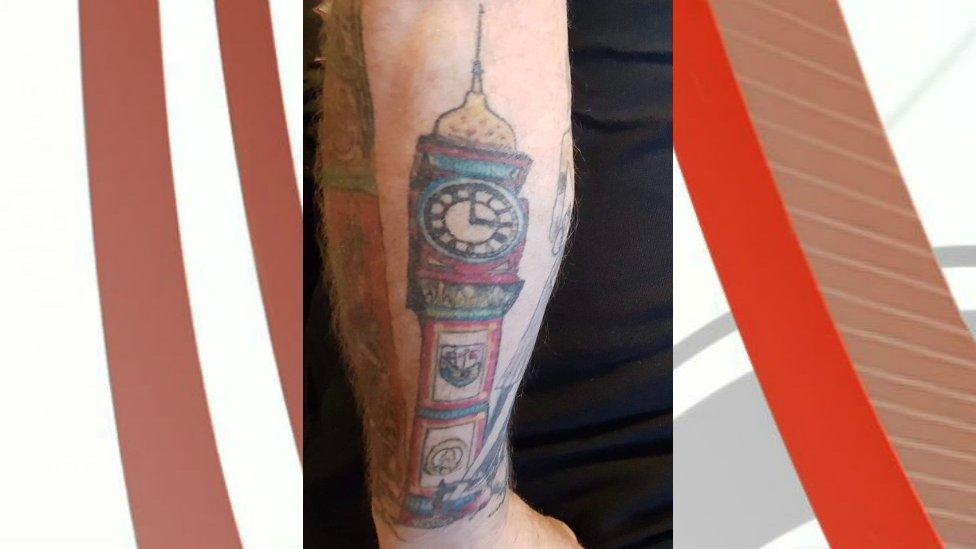
David Coughlan had Weymouth's Jubilee Clock Tower tattooed on his arm to mark his wedding day
For some people, the clock tower continues to play an important role in their lives as a reminder of a happy time or important occasion.
Denise Coughlan and her husband David got married in 2016 at the Weymouth Pavilion, just along from the seaside town's Jubilee Clock Tower.
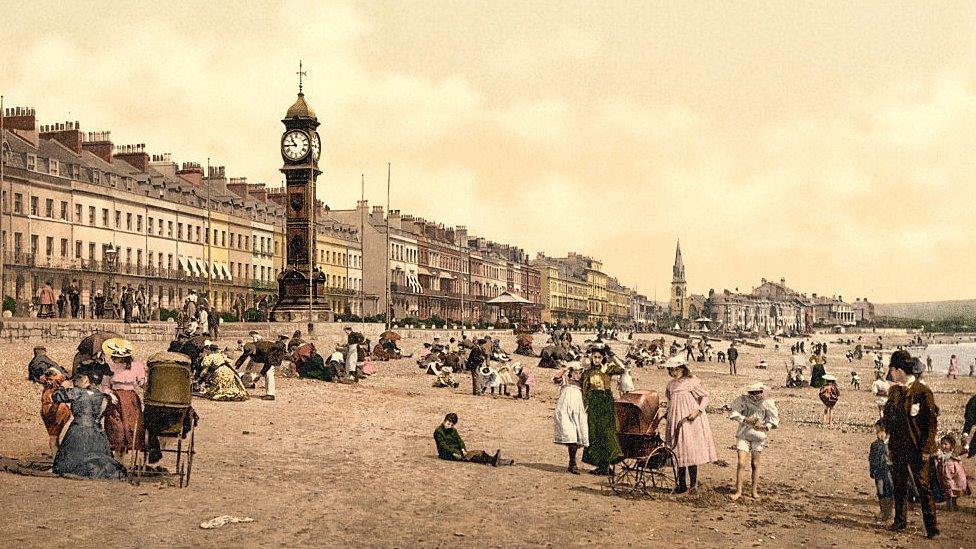
Weymouth's clock tower is one of several erected to mark the Golden Jubilee of Queen Victoria
"The Jubilee Clock tattoo was David's idea as a memory of our wedding day," says Denise, who is from Plymouth. "We were walking up the road opposite the clock tower one day and he just said: 'I could get that done, tattooed on.'
"Jokingly at the time I said: 'You could and you could get the time on it set to 3 o'clock - the time we got married.' So he did - he went out and got it done!"
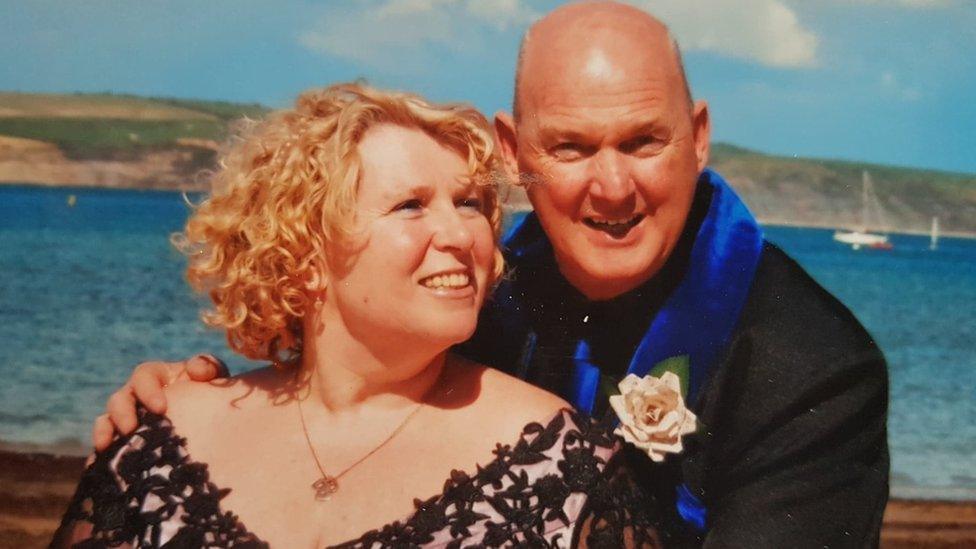
Denise and David Coughlan got married on the Weymouth seafront
For Denise, it's important the clock - which still tells the right time - continues to be looked after. "The Jubilee Clock Tower has just always been there," she says. "My mum still lives there and I love Weymouth. I go back a lot.
"The tower stands in the middle of the seafront and you can't really miss it. I love it."